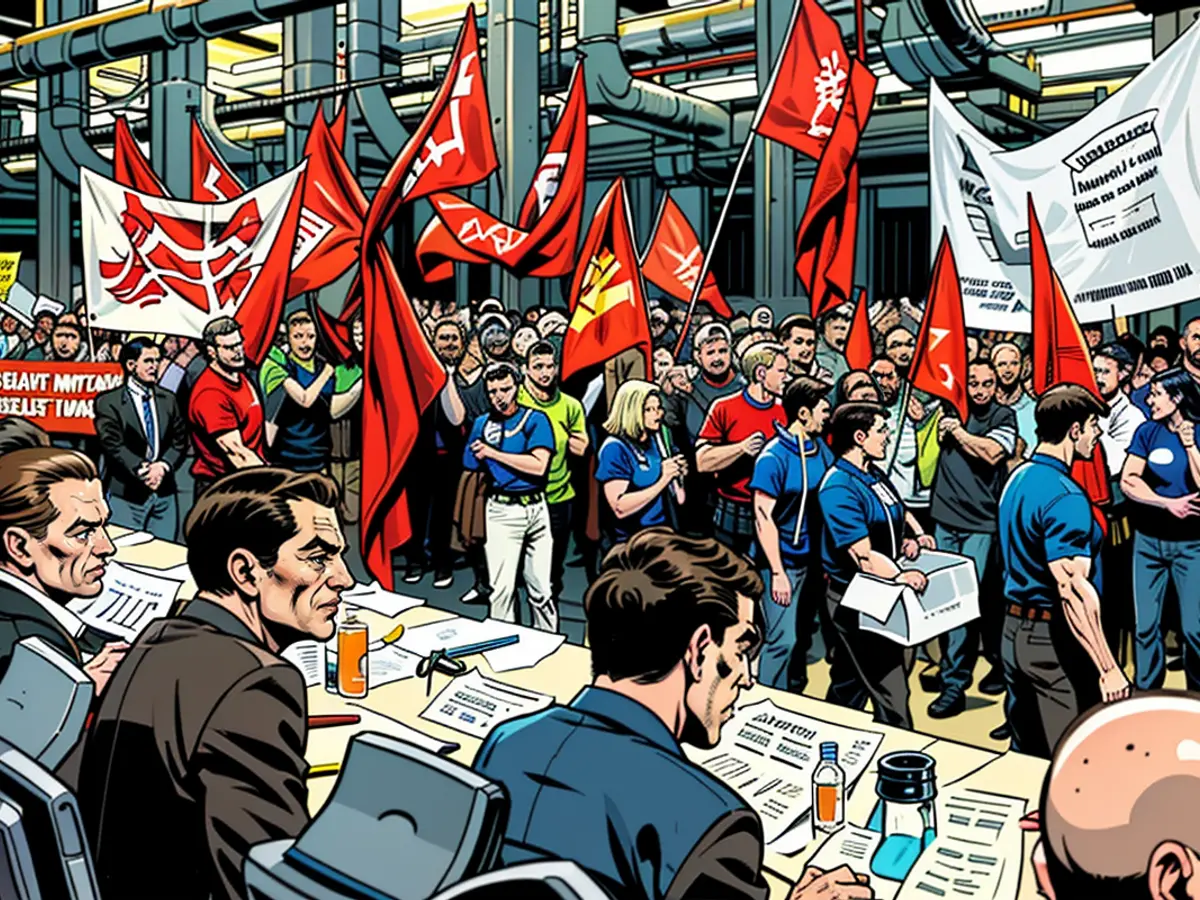- The automobile sector is experiencing turbulence - the Volkswagen predicament is causing ripples
Volkswagen's tightened fiscal restraints have sparked dissent among its workforce. During a gathering in Wolfsburg, the management encountered loud objections. The company's senior executives argued for their cost-reduction initiatives toward 25,000 workers, but works council chief Daniela Cavallo pledged a strong protest. She vowed to oppose plant shutdowns, layoffs, or wage reductions, emphasizing, "This isn't happening with us."
Volkswagen's tougher fiscal policies may just be the beginning of trouble, warns specialist opinion. The entire German automobile sector is grappling with subpar sales, particularly for electric vehicles (EVs), raising concerns about the industry's future, as per the Ifo Institute. The German car market is currently experiencing sluggish growth. Compared to August of the previous year, new car registrations fell significantly in August. The decline was primarily due to the recent deteriorating demand for electric vehicles, as reported by the Federal Motor Transport Authority (KBA). However, other engine types also saw a downturn.
Based on the KBA's data, 69% fewer electric vehicles were registered in August compared to August the year prior. The decrease was 24.4% for diesel vehicles and 7.4% for gasoline vehicles. Overall, new registrations dropped by 27.8%.
The Ifo Institute predicts a dismal outlook. The industry's confidence index fell by 6.2 points to -24.7 points in August, marking the fourth consecutive drop following a brief improvement. "The auto industry's optimism is spiraling downward," said Ifo expert Anita Woelfl.
Future expectations are particularly pessimistic. "Companies in the German automobile industry are grappling with a lack of new orders, especially from overseas," said Woelfl. "This is now manifesting in their workforce plans."
Demand for EVs remains low
The KBA in Flensburg attributed the current dip in the German new car market to special circumstances from the previous year. Nevertheless, the market situation remains tense," said Constantin Gall of the consulting firm EY. "We are hardly on the road to a sustained recovery, and the gap to the pre-crisis level remains substantial." To date, around 590,000 fewer new cars have been sold in Germany this year compared to the same period in 2019, before the pandemic.
Given the low electric vehicle registration numbers, EY highlighted an unusually high number of such vehicles registered in August 2023. At that time, last-minute purchases by commercial customers had inflated electric vehicle registrations - before the corporate subsidy expired on September 1, 2023.
The German government plans to reintroduce state aid to boost electric vehicle sales. These efforts aim to offer stronger tax incentives for electric vehicles as company cars. Demand for electric vehicles plummeted following the suspension of the state subsidy. The government abruptly halted the so-called environmental bonus in December due to budget constraints. During budget negotiations in July, the traffic light coalition agreed on a "growth initiative," which includes the promotion of electric cars as company cars through tax relief. As a result, a special depreciation for newly registered fully electric and comparable zero-emission vehicles will be introduced for companies starting July 1, 2024. Additionally, the ceiling for the gross list price for electric vehicles in the company car tax will be raised from 70,000 euros to 95,000 euros.
However, these initiatives might not be enough to fully utilize all plants. Chief Financial Officer Arno Antlitz acknowledged this during the works meeting, pointing out general overcapacity, not just for electric vehicles. In Europe, around two million fewer cars are sold annually compared to before the pandemic, and this trend is unlikely to change. For VW, with a market share of approximately a quarter in Europe, this translates to: "We're missing the sales for around two plants due to the lack of a market. This isn't related to our product quality or underperformance in sales."
The German government aims to boost electric vehicle sales with new incentives, recognizing the low demand currently. Despite these efforts, Volkswagen's Chief Financial Officer Arno Antlitz acknowledged that general overcapacity in Europe's car market might lead to missing sales for two of their plants.
Despite the particular drop in electric vehicle registrations in August 2023 due to last-minute purchases, the overall market situation remains challenging for car manufacturers, including Volkswagen.







